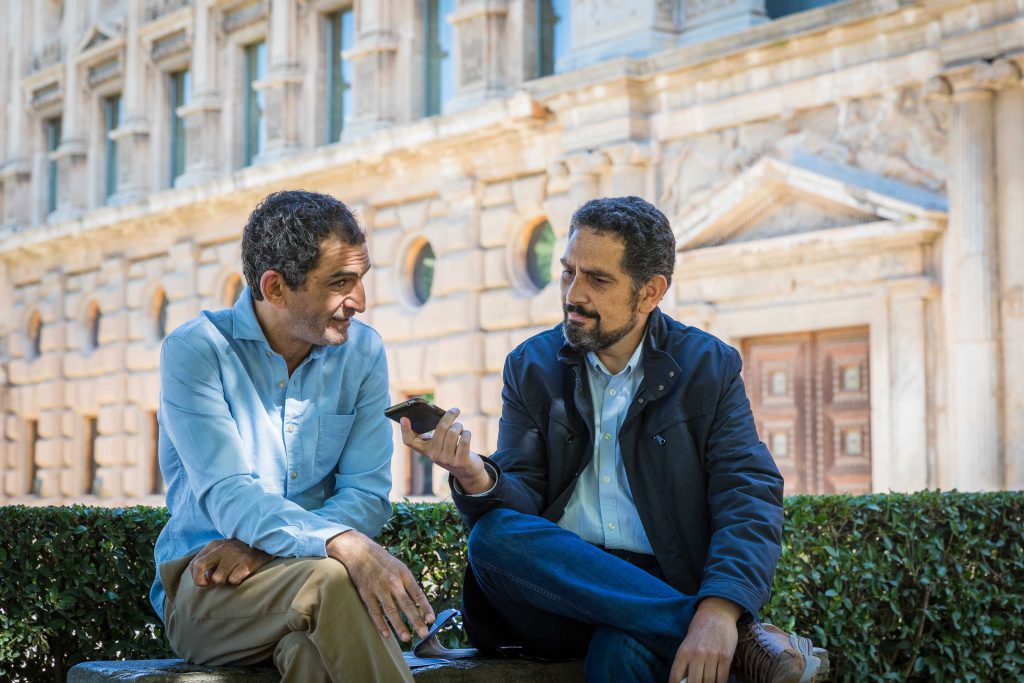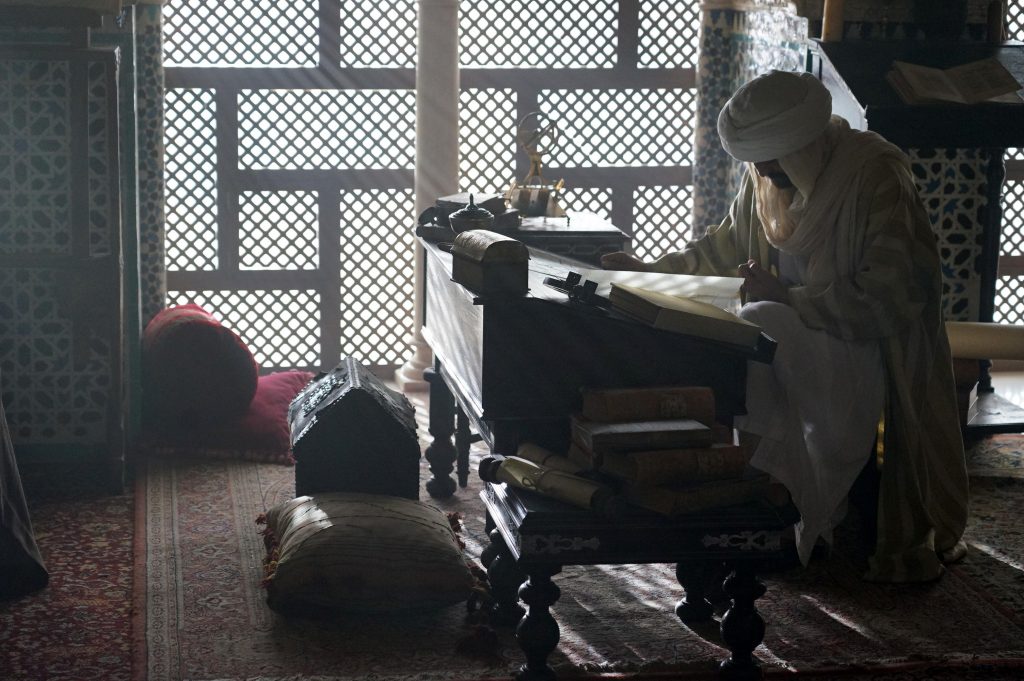Text by Julio Grosso Mesa
Photography by Lucía Rivas/PAG
Amr Waked (Cairo, 1973) is an international actor who regularly works in major Hollywood productions, such as Syriana (2005), Salmon fishing in the Yemen (2011) or Lucy (2014), along with stars such as Scarlet Johansson , George Clooney, Matt Damon, Emily Blunt or Ewan McGregor. The opportunity to play a different, “less commercial and more spiritual” role, his deep Sufi beliefs and also a bit of chance have brought him to Granada for a month and a half to get into the shoes of the Granada poet, vizier and politician Ibn al-Khatib, protagonist of the documentary feature film “Los constructores de La Alhambra” by Isabel Fernández.
Waked is a solid actor, and he is “very easy to work with” according to the management crew. In addition, he is a political activist on Twitter, where he has 7.2 million followers, and, above all, a kind, educated and very close person, who easily accepts a conversation with a stranger and gives FIG a brief interview smoking a cigarette on a bench in the Alhambra.

How did you come into contact with this documentary project?
Isabel Fernández (documentary’s director and producer) called me in 2018 because she wanted an Arab actor that lived in Spain and I had moved to Barcelona shortly before, but I’m not sure why she chose me. It’s been a long time since then, almost three years.
What has playing the main character meant for you?
I am happy for this opportunity because as an actor and artist I have not had such opportunities in my 30 year career. It is very strange and special to be doing something like this. Playing al-Khatib has been a very deep, mystical personal experience that has touched me deeply and has changed my perception of the world, as well as of life and of our history as Arabs and humans.
How have you prepared for the role?
Each role has its own path, its own preparation, and the path of this role was marked by the sound, by the Sufi poems that I have been listening to every night and day, even on set with my headphones. They have made me able to isolate myself from the shooting environment, letting me be all alone with the spirit and soul of Sufism, with the poems of the love of God and the love of the Prophet, which advise you to live without anything material in life. It has been a very deep spiritual experience and I don’t think I will find another opportunity like this in the next ten or fifteen years.

So your motivation has been very different from other commercial projects you have been in…
Yes, I have done many kinds of movies and it happens that sometimes one wants to do something more spiritual although it usually doesn’t work and it doesn’t succeed. But in this documentary it has worked well and for the Arab world as well. It is very important to tell these types of stories of Arab protagonists, not of “extremism” and “terrorism” characters that the press talks about or that we see on TV. I am Egyptian and I have lived in Egypt for forty years and I have never seen, nor have I ever spoken to a terrorist in my life. Why do we always put the focus on the bad Arab, who is a minority? And so when I spoke to Isabel the first time, I knew that this was a story of truth and integration.
After working on the role of Ibn al-Khatib, what do you think of him as a historical figure?
He was a very intelligent and an extremely political person, and that is why they killed him. Because he had more power as a vizier than the Sultan, and Muhammad V wanted to be the most powerful and wisest in the sultanate. Al-Khatib is a perfect example of the wise men of that time; doctors, astronomers, poets …
What impression do you get from Granada after living here for more than 6 weeks?
I will be back. This is not the last time I come to Granada for sure. I have been very surprised by the people, who have continuous happiness. And together with Seville and Almería, they are the only cities where I have met people who want to demonstrate their Arab past, their Arab blood and wisdom. Granada is a European city without racism and that is why I am looking for a house here, Inshallah (God willing).



